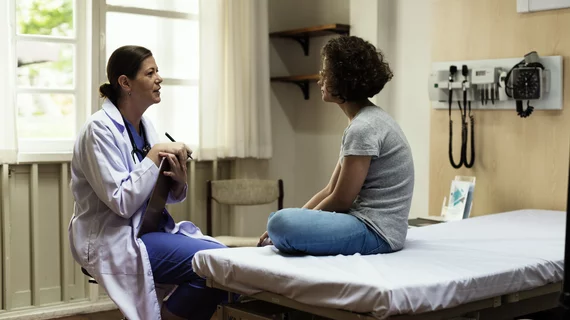Nearly 33% of women who suffer a fractured forearm may be victims of intimate partner violence. Radiologists must start screening patients with these findings, particularly as the pandemic forces people back inside.
Typically, a fractured ulna occurs when a person puts their hands up to guard their face against being hit. These injuries—known as “nightstick fractures”—are commonly seen in males who try to fend off a police officer’s nightstick.
But it wasn’t until Bharti Khurana, MD, a radiologist at Brigham and Women’s Hospital, noticed something unusual about her patients that prompted her to take action.
“I would see these types of injuries in men, but once in a while I would see them in women,” Khurana said in a statement. “I never correlated it with intimate partner violence until recently. I shared my thoughts with our orthopedic surgeons and, with their interest and support, decided to pursue the study.”
Khurana and colleagues gathered data on 62 women, ages 18 to 50, with isolated ulnar fractures who were treated at one of six hospitals. Twelve of those patients were confirmed victims of partner violence, while eight were believed to have been abused.
Patient x-rays showed that intimate partner violence was “strongly” associated with minimally displaced fractures, which occurs when the bone breaks completely through but doesn’t move.
Homelessness and a prior visit to the emergency department for musculoskeletal injuries were also associated with such fractures, Khurana noted.
If radiologists observe non-displaced ulnar fractures they can inform the emergency department physician and the ordering physician can then look at the patient’s history to determine if violence is a possibility.
And doing so is particularly important during the ongoing pandemic, lead author of the study and orthopedic surgery resident at Boston Medical Center David Sing, MD, explained on Monday.
“We have resources that we can provide to the patients who are stuck in that situation,” Sing added. “It’s especially important during COVID-19, where we’ve seen the rate of intimate partner violence go up with people trapped at home with their abusers.”
The full study is being presented during RSNA’s annual meeting.

